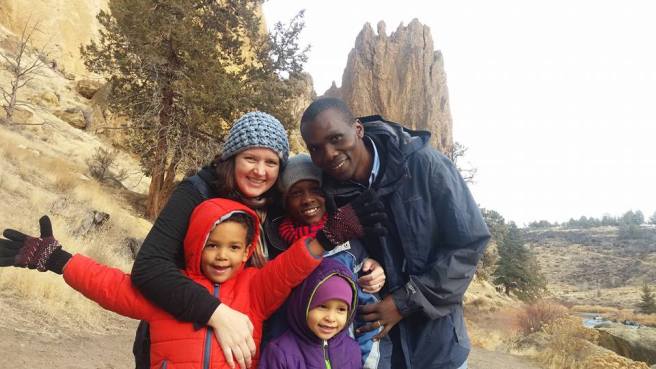Hello friends,
I apologize that it’s been so long since I updated you. I should have written this sooner.
You may remember that I have been working on:
- Developing a brick business that serves as a job and skills training for homeless youth over the age of 15
- Overseeing the monitoring and evaluation of the Pamoja savings groups grant
Thank you, friends, for caring enough about the people of Tanzania and trusting me enough to help me succeed in this work. The brick business is in place and hires five youth who were living on the streets (though most of them are now able to rent a room), and I have handed over the leadership of this project to a Tanzanian development professional named Moses Nyamhanga (pictured below) and Yusufu, one of the youth who was living on the streets.

For monitoring and evaluation of the savings groups, we hired and trained this Tanzanian research professional named Enock Kawira. I am still available if he has questions, but he is the one running the show.

Now that I have turned this work over to Tanzanian leadership, what next? (The title means, “Where do we go now?”) So many of you helped me to make a good decision about this. There is nothing I could have done to deserve your help- I just thank you for your kindness. Although I am in the U.S. for now, I have decided to continue working in Tanzania long-term.
Under Eric Soard’s guidance, I will be starting a missional community that will live and work together in Tarime, Tanzania. (What’s a missional community? Click here to learn more.) It will be composed of between six and twelve members. Half will be Tanzanians, and half will be overseas volunteers. They will commit to at least a year of living together. We will help each other to grow closer to God, and we will be a service corps for the budding United Methodist Church in the Mara Region of Tanzania.
I am thankful that the Tanzania Annual Conference Development Office is working more and more these days with an African development professional named Fred Otieno. He has a great record of helping organizations and churches to grow, as well as helping Tanzanians to leave poverty (See Fred on the right below, with his family).

When I asked him what he thought about this idea, he asked me to take it a step further.
Me: One of my biggest hesitations about this community is that I don’t see how it will help the many suffering people in Tanzania. It will be valuable for the members of the community, sure, but how does it help Tanzania?
Fred: A problem here is that college graduates do not value service. Consider the Western culture. Isn’t it common in your country to see college graduates waiting tables if they haven’t yet found a job in their field?
Me: Yeah, for sure.
Fred: They won’t do that in Tanzania. If someone graduates from college and doesn’t get a job, they will just sit at home. If you ask them why, they will say, “There are no jobs”. They will never go out and work as a waiter. Since they have studied, they have this idea now of making a lot of money, being driven by chauffeurs, being given free breakfast and things like that. It’s a big problem that they do not value service.
Me: That’s terrible. I see how that would lead to a lot of suffering for the majority of the people of Tanzania.
Fred: Oh yeah, it is a big problem. With this community, the way that you can really help Tanzania is to teach the value of service to these college graduates.
Me: Wow. So you mean that when the Tanzanian graduates go on to hold jobs in the country, they will be more likely to serve the people, less likely to just serve themselves?
Fred: Yeah, yeah, that’s right. The graduates and the overseas volunteers should do service work for the United Methodist Church. They should do it together. They should do things that Tanzanian college graduates normally wouldn’t do, like making mud bricks, digging, building, different kinds of manual labor.
Me: Do you think it will be difficult to find Tanzanian graduates who are willing to join our community?
Fred: No, it is possible. You will have to visit the Christian student unions at different universities, but you will find them.
It was a pretty short conversation, but it changed things. I have known for awhile that reforming unjust systems is necessary for helping the suffering people in Tanzania, and I had hoped to address this. It’s tricky, though, to address unjust systems without also communicating the (false) message that Tanzanians are responsible for their suffering. It might obscure the fact that African nations also suffer at the hands of unjust international trade policies. And really, as an outsider, what would I do? For these reasons, I have stayed away from attempting this sort of systemic change.
After hearing this requested by an African who I respect so much, though, we have decided to make this the final purpose of the community. With Fred’s help, our community will teach the value of service to Tanzanian college graduates.
When will the community start? It’s hard to tell. For now, all I know is that it will start as soon as we have done all of the prep work necessary to do a good job; no earlier, no later. For now, I am finalizing the basic concept of the community. If anyone has experience with communities of this sort, or knows anyone who has worked with missional communities, I would love to talk with you.